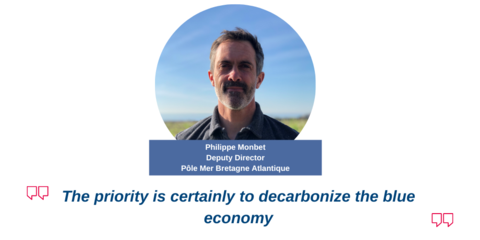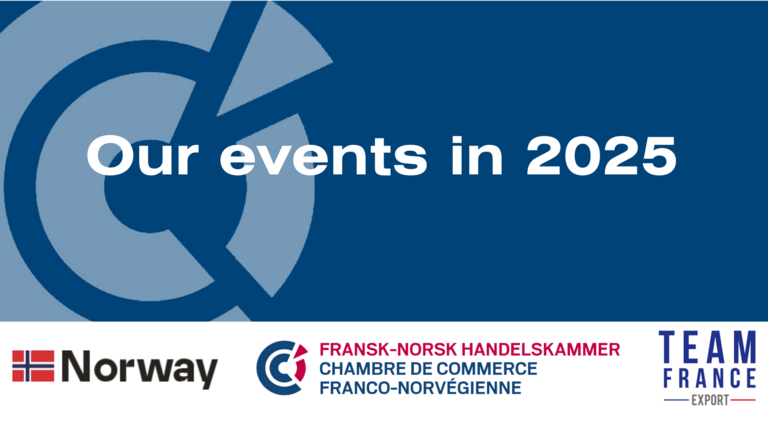Interview
"The priority is certainly to decarbonize the blue economy"

The CCFN opens its doors to Philippe Monbet, Deputy Director at the Pôle Mer Bretagne Atlantique Cluster.
The Pôle Mer Bretagne Atlantique is a maritime innovation business cluster that collaborates with stakeholders to develop projects in the maritime sector. Its objective is to strengthen the innovation capacity of companies and stimulate growth and employment in this market.
In September, Philippe Monbet will become Director of the Pôle Mer Bretagne Atlantique, after several years spent in this cluster. Prior to that, he was involved in international research and worked at Ifremer, an oceanographic institution in Brest.
You will be appointed in September as Director at the Pôle Mer Bretagne Atlantique Cluster. What are your ambitions for this new position and for the years to come?
My ambition is really to maintain and increase our recognition as a sea innovation cluster in our role to support innovation and address the challenges related to a sustainable blue economy and an healthy ocean. Our highly diverse membership with academia, entreprises or professional organisations is definitely our main asset. Collectively we are able to design what will be the maritime world of the future. Innovation is not restricted to administrative boundaries, so I significantly value collaboration with other clusters, entities and stakeholders at national but also European and international levels. We have a very long-standing relationship with Norway that started with the French-Norwegian Foundation. Today I am very proud to maintain and amplify our collaborations thanks to the French-Norwegian Chamber of Commerce.
What are the main challenges facing the French maritime sector today?
Challenges are multiple as the blue economy embraces various established and emerging sectors such as for example fisheries, aquaculture, shipbuilding, shipping, marine renewables, port activities or even tourism. I don’t think that there are French specificities, as we all face the same issues and mainly one major common challenge that is climate change. This clearly will affect (in some case it already does) most of the maritime sectors but also simply our life. So the priority is certainly to decarbonize the blue economy. In that framework, two sectors are emblematic i.e. shipping and energy. As a cluster, we dedicate some significant efforts to support our members toward innovative solutions and services that will make ships greener (and smarter) as well as help the development of marine renewables and in particular floating offshore wind.
In which specific areas would you be interested in strengthening the maritime cooperation between France and Norway?
Both France and Norway are two great maritime nations with quite complementary knowledge and expertise. I strongly believe there is a good ground for collaboration on issues mentioned above such as green and smart ship, offshore wind, but also aquaculture where most of the French sector is rather small coastal or onshore production units compared to Norway where it is offshore and often at higher scale. Overall, cooperation topics are numerous and Pôle Mer Bretagne Atlantique (with its twin cluster Pôle Mer Méditerranée) already established some good collaborations with Norwegian clusters like GCE Ocean Technology, GCE NODE, NCE Seafood Innovation and Norway Offshore Wind.
We will have a chance to host a delegation of GCE Ocean Technology in October to discuss best practices and collaboration France – Norway!
The French-Norwegian Days 2022 (12-13 October), organized by the French-Norwegian Chamber of Commerce in Oslo, will focus on “A French-Norwegian Approach Towards A Blue Economy”. We will also work together on the Sea tech Week (26-29th September with Innovation Norway) and NorShipping 2023. On which specific topics could we collaborate with your Cluster for these events?
As mentioned decarbonisation of the maritime transport and floating offshore wind are definitely topics that both of our countries need to address and collaborate. But overall, there is still plenty of innovation to develop, so the fields of cooperation are wide open. Both events will be the opportunity to host delegation and to start discussion to improve our respective knowledge regarding our strengths as well as our needs. I look forward to welcoming Norway on our territory!






